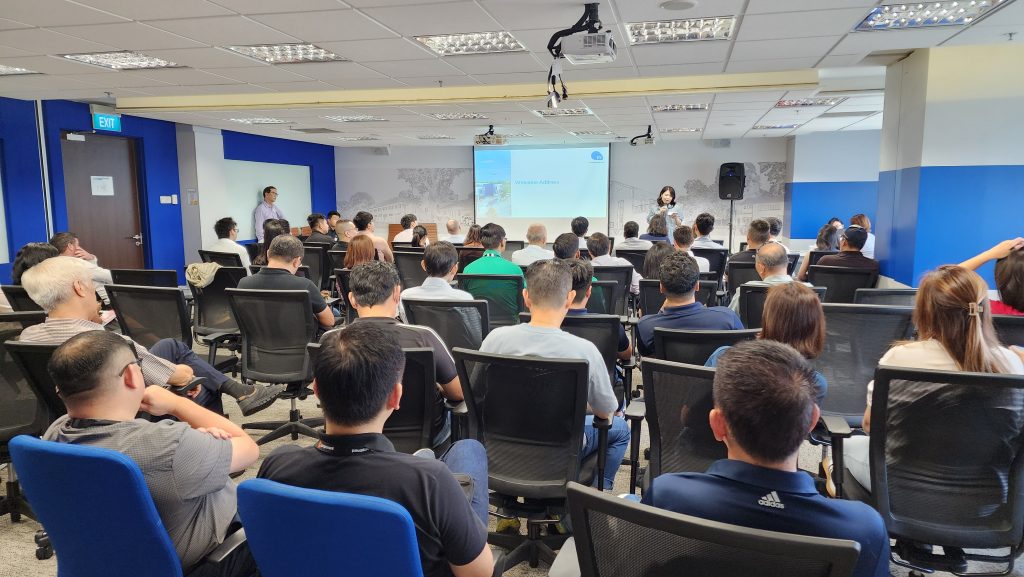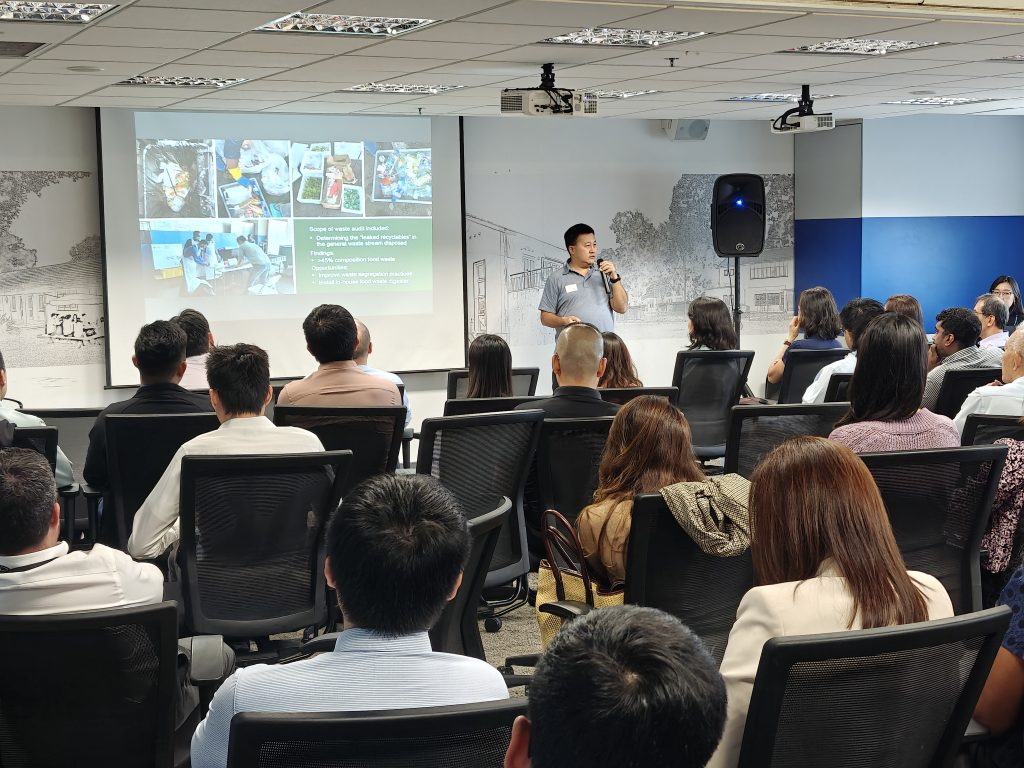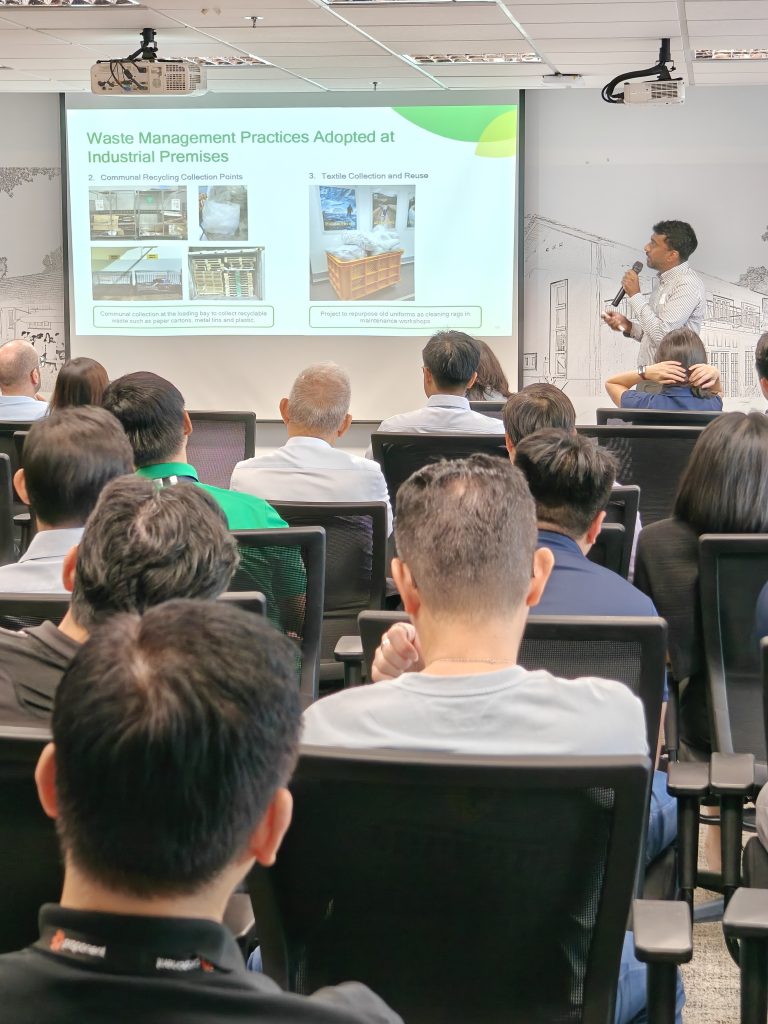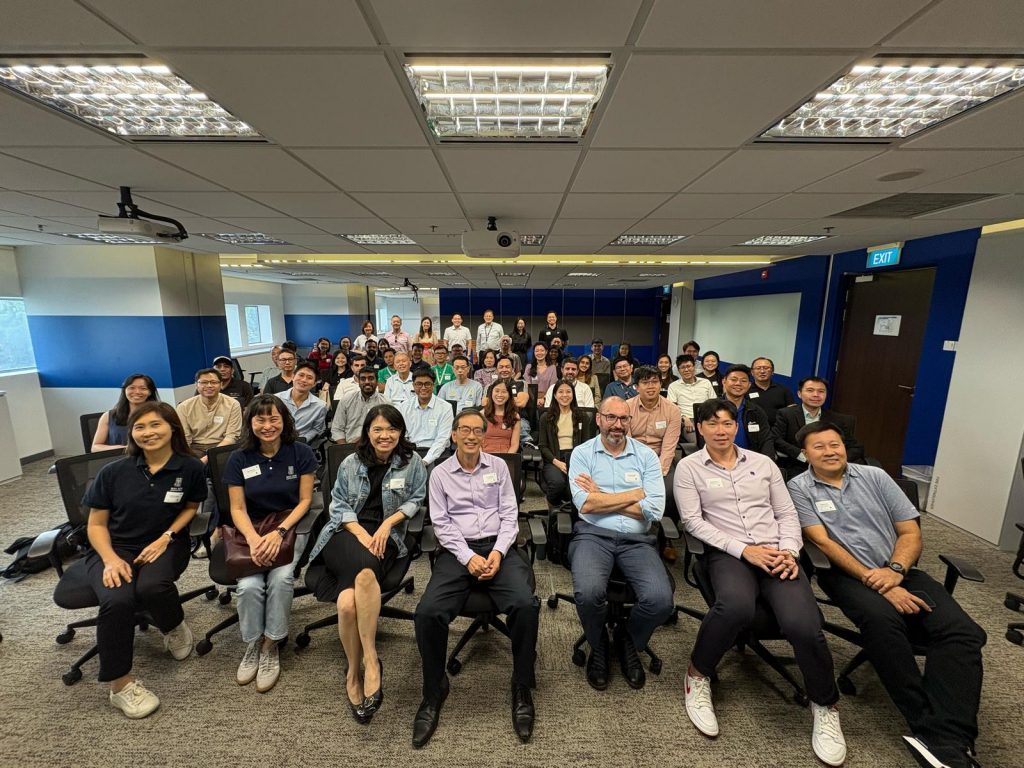On 13 February, AAIS and JTC held the second Sustainability Community of Practice (CoP), a forum that brings together aerospace industry stakeholders to discuss and advance sustainability initiatives. The focus of this session was on waste management and energy efficiency.
The session began with words of welcome by Ms Lim Wee Lee, Director Aerospace and Precision Engineering Cluster at JTC. AAIS Chief Executive followed reiterating the importance of the CoP in driving collaborative sustainability efforts among the industry. He touched on the 2024 Sustainability Framework of SAP, conducted by AAIS and commissioned by JTC, from which the establishment of the CoP was a key recommendation.
Focus on Waste Management and Energy Efficiency
The National Environment Agency (NEA) Sustainability Division delivered a presentation on sustainable solid waste management in Singapore, providing participants with an overview of how NEA administers Singapore’s solid (general) and hazardous waste management systems. Beyond the 3Rs (Reduce, Reuse, Recycle), NEA highlighted innovative waste treatment technologies that recover energy efficiently, minimise land use, and reduce ash residue.
A key point of discussion was Semakau Landfill, which is already more than halfway full. If waste generation rates remain unchanged, it is projected to reach full capacity by 2035, highlighting the urgent need for sustainable waste solutions.
The Waste Management & Recycling Association of Singapore (WMRAS) then shared best practices for safe waste management, focusing on how corporations and private entities can treat waste correctly and minimise waste generation. WMRAS introduced the “WSH Guidelines for General Waste Management”, developed in partnership with the Workplace Safety and Health (WSH) Council, which provides practical workplace safety and health guidance for waste collection. WMRAS also offers training and consultancy on workplace safety for waste management professionals.
Participants also heard from Sembcorp on solar technology solutions, covering various services and contract options for photovoltaic (PV) solar panel installation. Case studies showcased companies in the Seletar area that have successfully adopted solar energy by installing panels on rooftops, carpark covers, and walkways. During the Q&A session, participants discussed whether other clean energy sources, such as wind capture, could be viable for Seletar.
Government Grants Energy Efficiency Projects
Officers from the Economic Development Board (EDB) and the National Environment Agency (NEA) were present to share with participants the various government grants available to support businesses in their sustainability efforts.
EDB introduced the Resource Efficiency Grant for Emissions (REG(E)), which helps manufacturing facilities implement emissions reduction projects to remain competitive in a low-carbon future. The grant is available to Singapore-registered companies that own or operate industrial facilities engaged in manufacturing activities. Support is provided based on the carbon abatement achieved by the project, with funding capped at 50% of qualifying costs. To be eligible, projects must result in measurable and verifiable carbon abatement of at least 250 tonnes per annum, such as through energy efficiency improvements, reduction of non-CO2 greenhouse gas emissions, or recovery of flare gases.
Meanwhile, NEA highlighted the Energy Efficiency Grant, which provides co-funding for businesses investing in energy-efficient (EE) equipment. This grant supports companies in adopting sustainable solutions by covering up to 70% of the cost for pre-approved EE equipment for SMEs and up to 30% for non-SMEs, with funding available until 31 March 2026. Eligible equipment includes energy-efficient air conditioners, compressed air systems, LED lighting, and motors. Additionally, projects with equipment that demonstrate lifetime carbon abatement exceeding 350 tonnes may qualify for funding of up to $350,000.
The session saw robust discussions on shared industry interests, with participants actively exchanging ideas on advancing sustainable practices. It was encouraging to see a continued strong commitment to sustainability, and we look forward to building on this momentum in future sessions.







Recent Comments